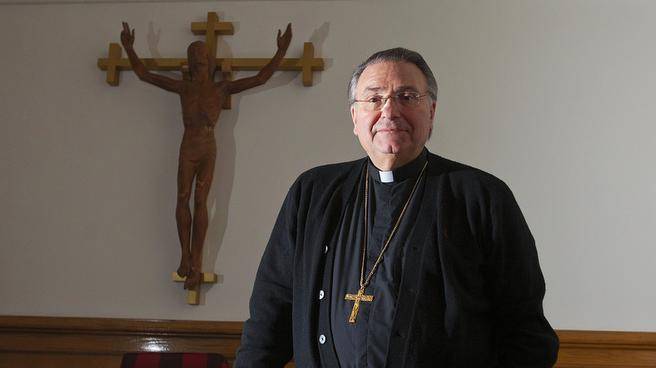Proposed Archdiocese Act a Recipe for Abuse
By Tom Urbaniak
Last month, Bill 30 was introduced in the Nova Scotia House of Assembly. It was unanimously given second reading by MLAs after less than a minute of debate. This new Archdiocese of Halifax-Yarmouth Act is still before the standing committee on local and private bills, where it was rightly deferred for more consideration. The implications are anything but local or private. This proposed law would grant to Roman Catholic Archbishop Anthony Mancini regulatory powers that are currently held only by officials of the government. He would become, in effect, his own registrar of joint stock companies, with the unilateral power to create, dissolve, modify and completely control dozens of civil corporations. The new act would also allow him to use provincial law, not just church law, to require parishes to “work collaboratively” with him on all matters. I am a practising Catholic in the neighbouring Diocese of Antigonish. Our diocese, like so many others, was ravaged by sexual abuse of children by some priests. For decades, bishops covered up those crimes and transferred sexual predators from one unsuspecting parish to another. This continued because the bishops claimed to have personal control over all personnel, accounts and property in the diocese. When finally faced with civil liability, they took money and property from the parishes, but kept the old, secretive structures going. The parishes could not vet these priests or supervise them in any way. The bishop himself was answerable to no council and accounted to no lay people. There was no transparency. In 2009, the then bishop, Raymond Lahey, was arrested in turn. He was eventually convicted and jailed for the possession of child pornography. Mancini should be aware that the scandals were enabled by a system of no oversight or accountability. But now, he has asked the Nova Scotia House of Assembly to enshrine and protect that very sick system in the laws of the province. MLAs should respectfully decline. They should allow the future parish corporations to have the same rights and responsibilities in law as any other corporations or societies in Nova Scotia. Their own bylaws could still reflect their Catholic identity and membership in the archdiocese. On the surface, Bill 30 might appear to protect parishes by giving them their own civil incorporation to shield their assets in the event of crimes by the bishop and his priests in other parishes. But this bill actually further disenfranchises parishioners and makes it virtually impossible for parishes to guard themselves against abuses. Under the bill, a parish corporation would have only seven legal members — the priest and six lay people, chosen in a manner to be designed by the archbishop. They would be subject at all times to removal and replacement by him. In the new system, most parishioners, no matter how dedicated they are, would not actually be legally recognized members of the parish. A general meeting in the parish to recommend the parish bylaws for approval by the archbishop would involve just the seven people. And the archbishop could simply direct them to approve bylaws of his choosing. These seven people would be called a “board of stewards,” but they would be advisory at best. Yet, as a body, they would have to assume all the liabilities that might come the parish’s way. They would bear responsibility with no commensurate authority or oversight. For example, parishes would still have no role in selecting, screening or periodically evaluating the priest, who would be the automatic “chief executive officer” for the business side of the parish corporation. This civil corporation would have less wiggle room than most unincorporated parishes do now in practice. Parishes would even need the archbishop’s specific permission to do something like hire a student to help with a fund-raising event. Furthermore, “any arrangements with a public authority” would require the archbishop’s written approval. If a parish ever wished to initiate a formal legal complaint against the archdiocese, such as to challenge an archbishop’s failure to properly vet a priest sent to the parish, a legally flawed forced closure, a violation of a trust agreement or improper confiscation of parish property, the parish would need the permission of the archbishop himself. So much for the “natural person powers” of a corporation! When Bishop Lahey was arrested, Archbishop Mancini wrote: “What I want to say is: Enough is enough! How much more can all of us take? Like you, my heart is broken . . . ” The system and the governance were and are broken, too. Sadly, Bill 30 doubles down on most of the flaws. It’s a recipe for abuse. Tom Urbaniak is a political scientist at Cape Breton University. He can be reached at tom_urbaniak@cbu.ca
|
.
Any original material on these pages is copyright © BishopAccountability.org 2004. Reproduce freely with attribution.
